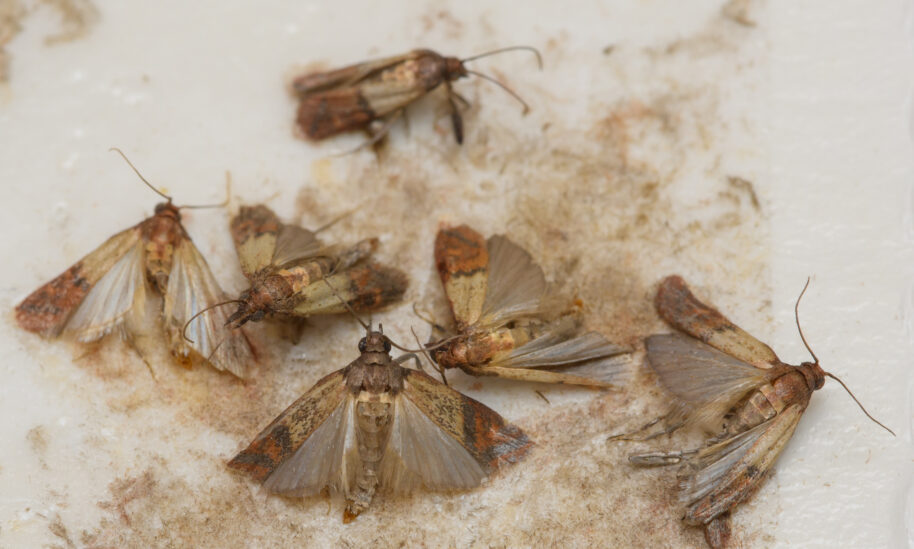Hoffman’s Exterminating shares tips to guard against beetles, moths and other common pantry pests
As the holiday season ramps up, families will soon be spending more time in the kitchen, cooking turkey dinners and baking pumpkin pies. However, Hoffman’s Exterminating reminds South Jersey residents to check their cabinets and seldom-used ingredients for pantry pests that can become a hassle during this joyous time of year.
Merchant grain beetles and Indian meal moths are among the most common pantry pests found in kitchens. They contaminate stored ingredients that are typically used to bake delicious holiday treats, such as flour, dried fruit, nuts and chocolate.
“Pantry pests don’t pose serious health or property threats, but because they can infest an area in a short amount of time, it’s important to stop a problem before it begins,” advises William T. Hoffman, President & CEO of Hoffman’s Exterminating. “One of the easiest ways to prevent an infestation is to routinely clean out pantries and cabinets, and sift through common stored products like flour and spices.”
The National Pest Management Association (NPMA) recommends some additional tips to keep pantries pest-free during the busy holiday baking season:
- Store food in Tupperware-type containers with secure lids.
- Add a bay leaf to canisters of dry goods. The herb’s pungent scent repels many pantry pests.
- Make it a habit while grocery shopping to carefully inspect food products in cardboard packages for signs of damage prior to placing it in the cart. Only purchase items that show no sign of damage.
- Check expiration dates on baking ingredients before use.
- Keep kitchen counters, floors and sinks clean because crumbs and spills quickly attract pests.
- Dispose of garbage regularly in sealed receptacles.
- Seal cracks or holes around the stovepipes and water pipes.
- Eliminate all moisture sites, including leaking pipes and clogged drains.
“If homeowners discover any pests in the pantry, they should thoroughly clean the shelves with a vacuum and discard the infested food in an outdoor trash bin,” added Hoffman. “It’s important to consult a licensed pest professional if an infestation has already taken root.”
For more information on pantry pests, visit the Hoffman’s website.



